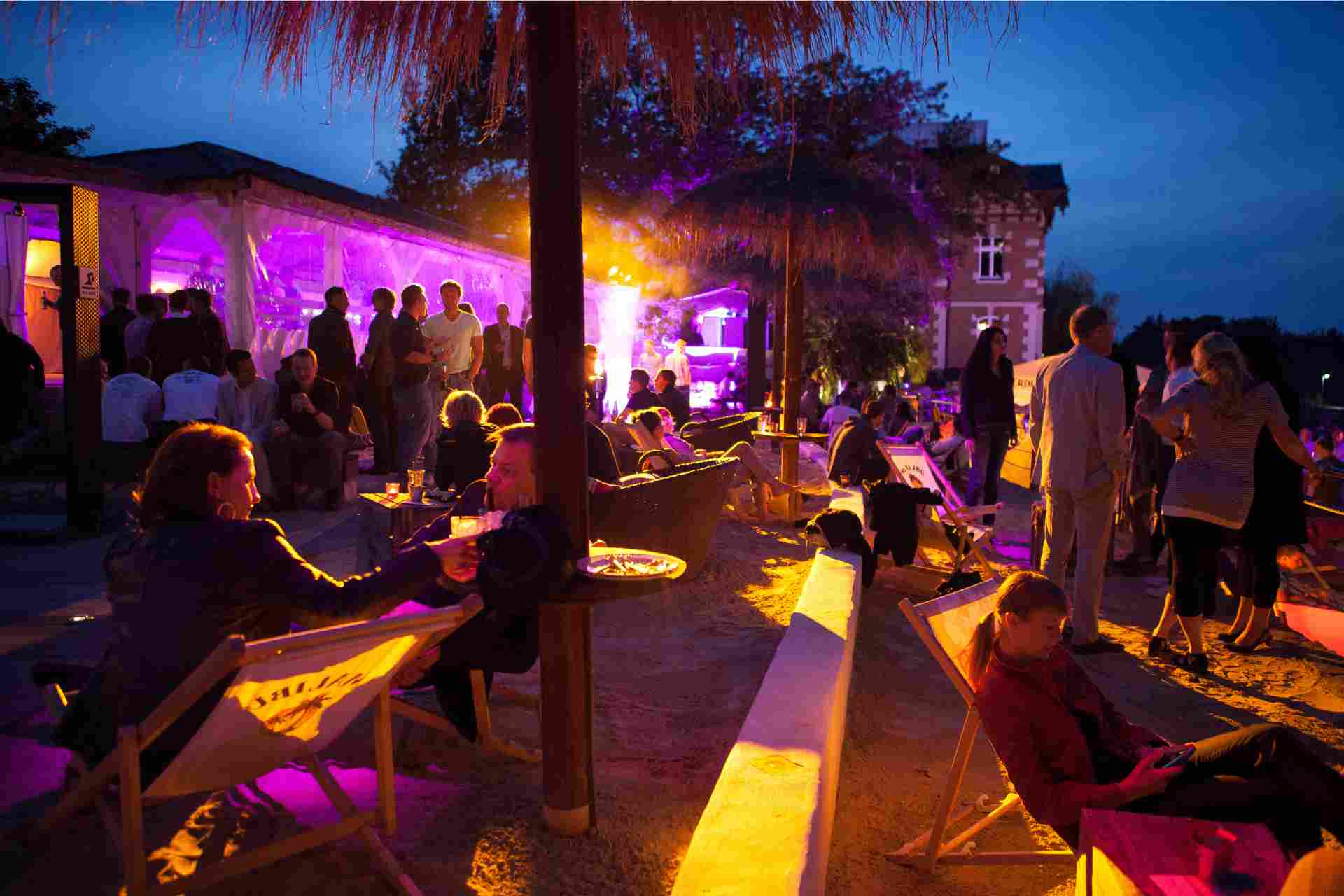The Benefits of Digital Marketing for Event Management Company
Introduction to Digital Marketing in Event Planning and Management Company
Digital marketing has become an essential aspect of event planning and management services in today's fast-paced, technology-driven world. With the majority of people spending a significant amount of time online, event planners must adapt their marketing strategies to reach and engage with their target audience effectively.
Digital marketing in event planning and management involves utilising various online channels and tools to promote events, increase visibility, and ultimately drive attendance. From social media platforms to email marketing and content creation, digital marketing provides event planners with a range of options to effectively market their services and events.
In this blog post, we will explore the different ways in which event planners can leverage digital marketing to enhance their business, increase engagement with their target audience, and ultimately, drive attendance to their events. We will also discuss best practices for utilising digital marketing in event planning and management and highlight some of the latest trends in the industry.
Benefits of Digital Marketing for an event Management in 2023
Here are some advantages of doing digital marketing for an event management company:
Increased Reach: Digital marketing allows event management companies to reach a wider audience, including potential customers who may not have heard of the company through traditional marketing channels.
Cost-Effective: Digital marketing is generally more cost-effective than traditional marketing methods, such as print advertising or direct mail campaigns. Event management companies can often reach a larger audience for a lower cost.
Increased Engagement: Digital marketing allows event management companies to engage with their audience in real-time through social media, email marketing, and other online channels. This can help build brand loyalty and increase attendee engagement at events.
Data-Driven Approach: Digital marketing allows event management companies to collect and analyze data on their audience's behavior, interests, and preferences. This information can be used to create targeted marketing campaigns and improve overall event planning and management strategies.
Improved Brand Awareness: Digital marketing allows event management companies to establish and improve their brand awareness through various online channels. By creating compelling content and utilizing social media platforms, event management companies can increase brand visibility and recognition.
Faster Results: Digital marketing campaigns can often generate faster results than traditional marketing methods. Event management companies can quickly pivot and adjust their campaigns based on real-time data, leading to more efficient and effective marketing efforts.
Improved Customer Relationships: Digital marketing allows event management companies to communicate with their customers and attendees in a more personalized and engaging way. As a result, bonds will become stronger and clients will show greater loyalty.
Some of the top advice and techniques for digital marketing are:
1.Building a professional Website
Your website is the foundation of your online presence and serves as the primary platform for promoting your event planning business. A professional website should reflect your brand identity, showcase your services and past events, and provide a seamless user experience for visitors.
To build a professional website, you can use website builders like Wix or Squarespace, or hire a web designer to create a custom website. When developing your website, remember to:
1. Pick a design that complements your brand's identity.
2. Maintain a user-friendly and informative website.
3. Utilize keywords and metadata to improve your website's search engine optimization
4. Include high-quality photos and videos of past events
5. Provide clear calls-to-action that encourage visitors to contact you or book your services
6. Ensure that your website is mobile-responsive and loads quickly
7. By building a professional website, you can establish credibility and attract more clients to your event planning business.
2.Leveraging Social Media Platforms for Event Promotion
Social media platforms can be powerful tools for promoting your events and reaching a wider audience. By leveraging social media, you can build brand awareness, engage with potential attendees, and drive ticket sales.
To leverage social media for event promotion, consider the following tips:
1. Choose the social media platforms that are most relevant to your target audience and event type. For example, Facebook and Instagram are popular platforms for promoting weddings and other social events, while LinkedIn is more suited for corporate events.
2.Create engaging content that showcases the unique aspects of your event and appeals to your target audience. 3. This could include photos, videos, behind-the-scenes glimpses, and event teasers.
4. Use relevant hashtags to increase your event's visibility on social media and reach new audiences.
5. Encourage attendees to share their experiences on social media by providing a branded event hashtag and running social media contests or giveaways.
6. Consider using paid social media advertising to increase your event's reach and target specific demographics.
7. Monitor your social media accounts and respond promptly to any inquiries or comments from potential attendees.
3.Using Email Marketing to Reach Your Target Audience
Email marketing is a cost-effective way to reach and engage with your target audience for event management. By creating targeted email campaigns, you can communicate with potential attendees, build excitement around your event, and drive ticket sales.
To effectively use email marketing for event management, consider the following tips:
1. Build a targeted email list by collecting email addresses from past attendees, website visitors, and social media followers.
2. Use a professional email marketing platform such as Mailchimp or Constant Contact to create visually appealing and engaging email campaigns.
3. Create personalized email campaigns that are tailored to your audience and their interests.
4. Provide relevant and valuable content in your emails, such as event updates, special promotions, and exclusive offers.
5. Use a clear and attention-grabbing subject line to entice recipients to open your emails.
Include calls-to-action in your emails that encourage recipients to purchase tickets, RSVP, or share the event with their networks.
6. Test and optimize your email campaigns by tracking open rates, click-through rates, and conversions.
7. By using email marketing to reach and engage with your target audience, you can build a relationship with potential attendees and drive ticket sales for your event.
4.Utilising Search Engine Optimization (SEO) to Boost Event Visibility
Search Engine Optimization (SEO) is a powerful tool that can help event planners boost the visibility of their events and attract more attendees. By optimizing your event website and content for search engines, you can increase your rankings in search engine results pages (SERPs) and drive more organic traffic to your website.
To utilize SEO for event visibility, consider the following tips:
1. Look up relevant terms that people in your target market use when searching.
2. Optimize your website's title tags, meta descriptions, and URLs with relevant keywords.
3. Create high-quality, informative, and engaging content that incorporates your target keywords.
4. To structure your material and make it simpler for search engines to crawl, use header tags (H1, H2, H3).
5. Build high-quality backlinks from reputable websites to increase your website's authority.
6. Make sure your website loads quickly and is optimized for mobile devices.
7. Update your website frequently with new information to demonstrate to search engines that it is relevant and current.
5.Best Practices for Digital Marketing in Event Planning and Management
Define your target audience: Knowing your target audience is essential to creating effective digital marketing campaigns. Develop buyer personas that represent your ideal attendees and use them to tailor your messaging and tactics.
Create a cohesive brand image: Develop a cohesive brand image across all your digital marketing channels, including your website, social media, email marketing, and paid advertising. This consistency will help to build trust and recognition with your audience.
Utilize social media: Social media platforms are powerful tools for event promotion and engagement. Use them to share event updates, post engaging content, and interact with your followers. Consider running social media contests or influencer marketing campaigns to boost engagement.
Leverage email marketing: Email marketing is a great way to reach your target audience directly. Use it to promote your event, share updates and news, and offer exclusive discounts or early-bird pricing.
Track and analyze your results: To improve your digital marketing efforts, it's essential to track and analyze your results. Use tools like Google Analytics to monitor your website traffic, email open rates, and social media engagement. Use this data to optimize your campaigns and improve your ROI.
By implementing these best practices, event planners can develop effective digital marketing campaigns that engage their target audience, build brand awareness, and ultimately drive more attendees to their events.
Conclusion and Future Trends in Digital Marketing for Event Company
In conclusion, digital marketing is a critical tool for event planners looking to promote their events and engage with their target audience. By leveraging social media, email marketing, search engine optimization, and other digital marketing channels, event planners can reach their target audience more effectively, build brand awareness, and drive more attendees to their events.
Looking to the future, digital marketing is expected to continue to play an increasingly important role in event planning and management. As technology continues to advance, event planners will have access to more powerful tools and data to help them optimize their digital marketing campaigns and deliver more targeted, engaging content to their audience.
Some of the future trends in digital marketing for event planners include the use of augmented and virtual reality to create immersive event experiences, the integration of artificial intelligence to personalize and automate marketing campaigns, and the adoption of more advanced analytics tools to track and optimize campaign performance.
Overall, event planners who stay ahead of these trends and continue to innovate with their digital marketing strategies will be well-positioned to succeed in an increasingly competitive industry.










